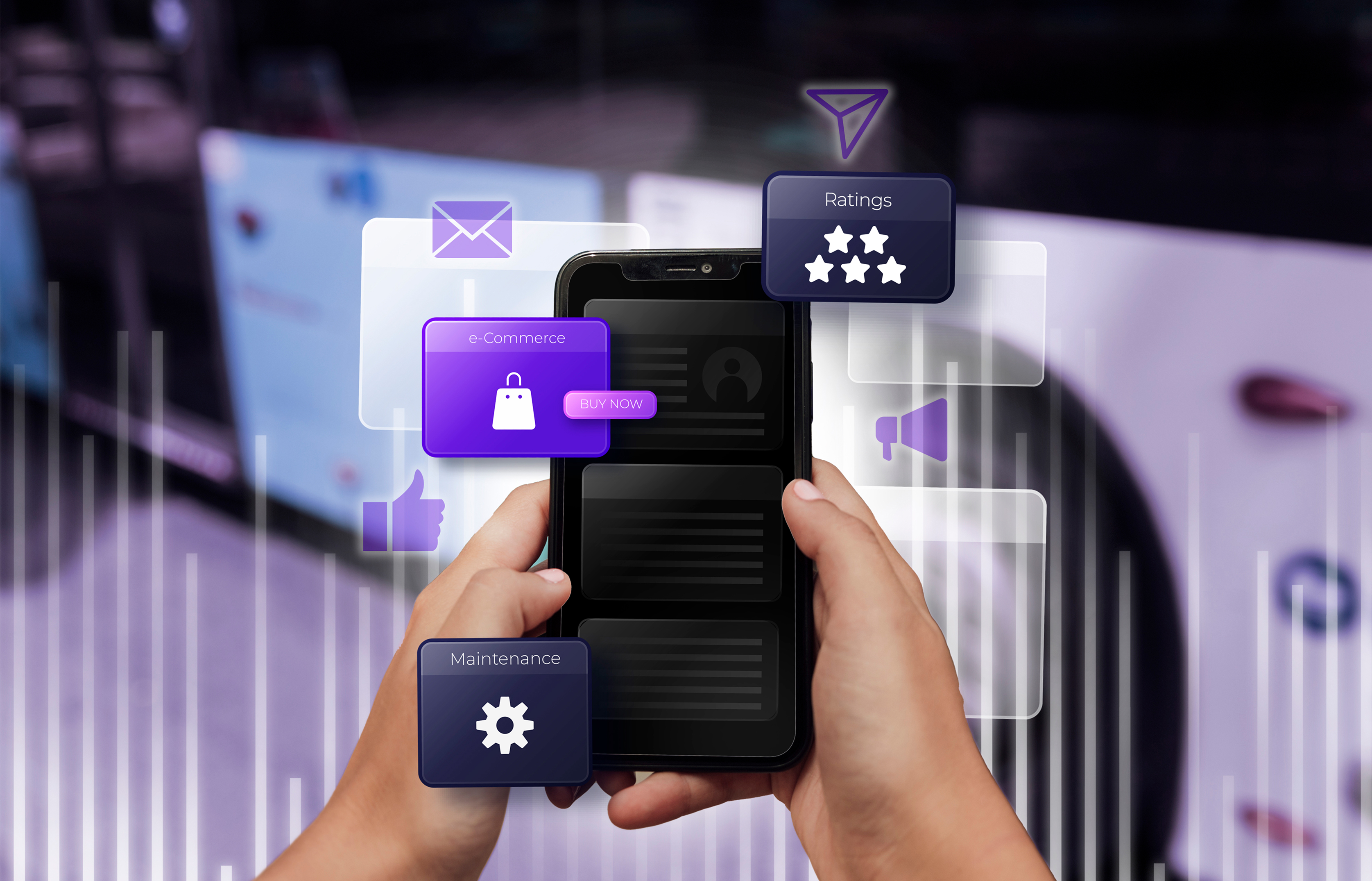Step-by-Step Mobile App Development:Complete Guide for 2025

Everything You Need to Know for 2025
By 2025, mobile applications will be more than simply digital tools; they will be business accelerators. A well-designed app may increase income, foster customer loyalty, and open up new markets, regardless of whether you're a startup releasing your first MVP or an established business optimising user engagement. However, developing a mobile application requires technical preparation, creative execution, and regular updates; it's not just about having a brilliant concept.
This article walks you through each stage of the process of developing a mobile app and demonstrates how selecting the best custom mobile app development company can turn your idea into a high-performing mobile product.
Step 1: Define the Idea and Understand the Market
The first step is to be clear about what your app does, who it is intended for, and how it differs from other apps. Consider this: what issue does the app address, and why would a user pick it over a rival product?
After you have addressed those questions, you must do market research. The functionality and user experience of your app may be shaped by researching rivals, comprehending consumer problems, and spotting trends. A deep comprehension of the market lowers risk and guarantees that your concept is applicable in the actual world. Research is the cornerstone that guides all future decisions, whether you're developing an eCommerce tool, a finance platform, or a gaming software.
Step 2: Plan the Project and Choose the Right Tech Stack

Behind the scenes, planning is where your app starts to take shape. You will provide your budget, desired schedule, development milestones, and essential features. In order to save time and money, companies frequently choose to use cross-platform mobile app development services, hybrid models, or native development (unique to iOS or Android) at this point.
Your project will be created on the appropriate tech stack that fits your business model if you work with an experienced app development company throughout the planning stage. Including bespoke web app development services in the roadmap will assist provide a consistent experience on desktop and mobile devices if your app needs certain online functions.
Step 3: Crafting the Design – UI/UX That Engages Users

After establishing the roadmap, the next step is to concentrate on user experience. This phase includes crafting the user interface and organizing how individuals will navigate through your app. The aim is to make your app not just visually attractive, but also straightforward and user-friendly.
Designers often start with wireframes—essentially schematics for each screen—before introducing colors, fonts, and brand elements. A seamless user experience can boost engagement, minimize bounce rates, and enhance user retention. In industries characterized by intense competition, such as fintech, eCommerce, or sports, high-quality design is essential for success. Many businesses seek out firms that provide fintech app development services or solutions from a fantasy sports app development company to guarantee a smooth and visually engaging user journey.
Step 4: Development – Coding Frontend and Backend

The development stage brings your application into existence. This phase encompasses both the frontend, which users engage with, and the backend, which manages data, logic, and server-side processes. Developers create clean, scalable code while making sure the application fulfills all intended functionalities and performance standards.
Depending on your requirements, developers might choose native technologies (Swift for iOS, Kotlin for Android) or opt for frameworks like React Native or Flutter for cross-platform application development. For businesses that require both mobile and web capabilities, incorporating web app development services into your application guarantees a seamless user experience across platforms.
These days, more businesses are incorporating AI into app development, enabling apps to track user activity, offer automated customer service, or make intelligent recommendations. In addition to improving usability, these characteristics give your product greater intelligence and adaptability.
Step 5: Testing and Quality Assurance

Following development, the software is put through a rigorous testing process to find bugs, performance difficulties, and compatibility concerns. To make sure the app works consistently in real-world scenarios, QA experts evaluate it across a range of devices, screen sizes, and operating systems.
Functional testing (does the app function as intended?), usability testing (is the experience seamless?), and security testing (is user data protected?) are all part of this process. Better ratings, more retention, and fewer user complaints are the outcomes of a well-tested app. To make sure nothing is overlooked prior to launch, businesses frequently work with an experienced mobile app development company in the USA or other locations that has QA knowledge.
Step 6: App Launch and Store Deployment

It's time to release the app after testing. The process of deployment entails uploading the finished product to the Google Play Store, Apple App Store, or both. Every platform has its own rules, approval procedures, and specifications for operation, content, and privacy.
Visibility depends on producing captivating store listings with pertinent keywords, captivating descriptions, and excellent screenshots. Despite being frequently disregarded, this step in the process significantly affects downloads. Selecting a trustworthy partner guarantees that the app satisfies user expectations and regional conformity, such as a mobile application development firm in New York or one that provides services in Toronto.
Step 7: Post-Launch Support and App Maintenance

App launch is only the first step; it's not the end. Performance monitoring, user feedback loops, and ongoing improvements are essential for true success. To maintain compatibility with new OS versions, add new features, and fix security flaws, apps must be updated frequently.
Regular changes are frequently necessary for businesses operating in dynamic industries like banking, sports, or eCommerce. A Shopify app development company, for instance, needs to stay abreast of modifications to the platform's partner ecosystem and APIs. Your app's scalability and security are guaranteed by long-term collaborations with companies that offer custom mobile app development services.
Step 8: Marketing the App and Driving Growth

How can consumers locate your app now that it's live? Any mobile app's success is greatly influenced by its marketing. The growth of your app is influenced by a number of factors, including influencer marketing, paid advertising campaigns, social media outreach, App Store Optimization (ASO), and search engine exposure.
To reach a particular regional audience, some companies also work with a mobile app development company near me or employ location-based targeting. A strong marketing plan guarantees that your app does more than just exist—it flourishes.
Why Work With CQLsys Technologies?
We at CQLsys Technologies have years of practical expertise developing cutting-edge online and mobile applications for a variety of sectors. Our team provides solutions that are suited to your company's objectives, whether you're developing an eCommerce website, a data-driven fintech tool, or a fantasy sports software.
From product concept and UX design to development, testing, and post-launch support, we offer full-service solutions. We offer cross-platform mobile app development services, hybrid solutions, and native mobile apps. CQLsys has the adaptability, dependability, and creativity your project requires, whether you're looking for a US-based mobile app development business or a worldwide partner.
Final Thoughts
When done correctly, mobile app development is a challenging but worthwhile process. Every stage, from idea validation to design, construction, and launch, calls for knowledge, focus, and alignment with your objectives. Working with an experienced team will help you steer clear of typical traps, launch your app more quickly, and create an app that not only meets but surpasses expectations.
CQLsys can assist you if you're prepared to realize your app idea, whether it involves a cross-platform experience, a Shopify integration, or a financial solution. Get in touch for a free consultation so that we can begin creating something truly remarkable.
